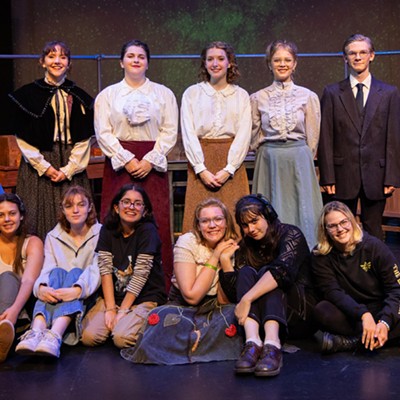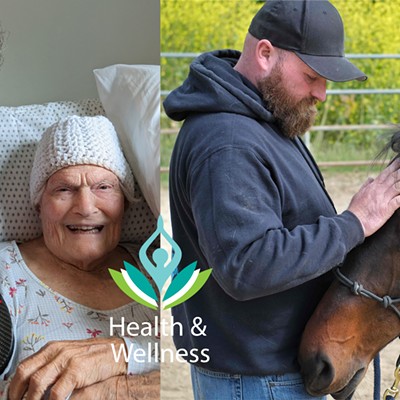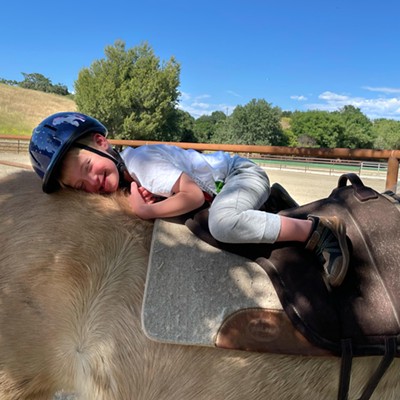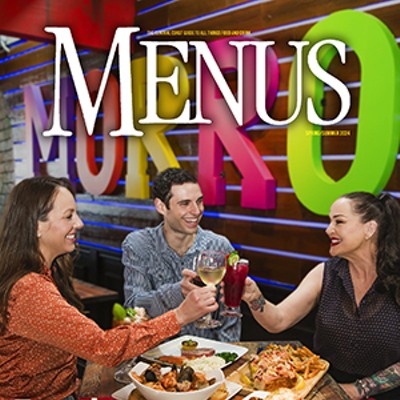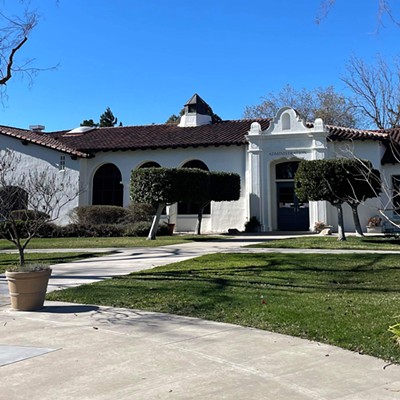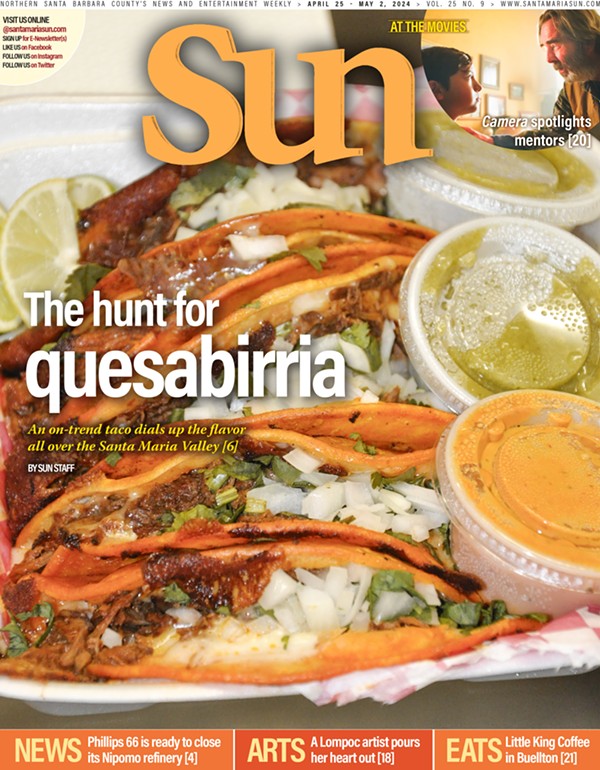The calming sound of a violin string being played echoes in the room as an elderly patient has an IV drip put into her arm.
It’s not an unfamiliar sight, Brynn Albanese playing the song “What A Wonderful World” by Louis Armstrong on her violin while a nurse administers treatment.
“I play a lot of simple songs—things like ‘Moon River Waltz,’ ‘Over the Rainbow,’ ‘Imagine,’ and of course ‘What a Wonderful World,’” Albanese said. “It’s my job to meet the patient where they are at and provide that complementary comfort to them.”
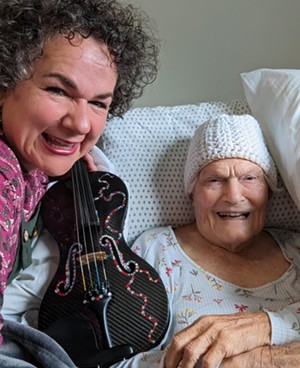
For Albanese, being a certified music practitioner means sequences like this are an almost everyday experience throughout hospitals and doctors’ offices across the Central Coast when she is around.
“I see myself playing a similar role to that of a sweeper defender in soccer,” she said. “I come in and sweep when the hospital requires musical treatment to be administered to help the patient in whatever they are experiencing.”
The semi-retired traveling musician has worked like this since 2021, lending her services to groups while spreading the word about the impact and healing power of music.
“I spent years as a traveling violinist, going all over the place to do what I am doing right now,” she said. “But now I can bring it into a whole new way of impacting people past it just being another performance.”
Albanese became interested in her musical talent’s use in medicine before the COVID-19 pandemic.
“During the pandemic years, I put myself through school, which took four years of studying and two years of internships after realizing that I could take my skills as a performer and make them a service,” she said.
That training process is what she said is the difference between being a certified music practitioner and being a medical hospice musician.
“Hospice is companion-based, so they pick someone based on the individual rather than anything else,” she said. “I would not consider myself to be a performer either, since the music I play goes hand in hand with administering medicine and other treatment.”
According to Albanese, a certified music practitioner can be called in by hospitals and medical facilities to serve several different roles.
The first is to be a peaceful distraction, usually during distressing procedures like injections or chemotherapy.
“Some people have physical ailments that also require some distraction while it is being treated,” Albanese said. “I have a versatile enough list of songs that I can play in the event they need something to take their mind off of things, whether it’s that or simply waiting for test results or to be discharged.”
Vital signs stabilization, which often involves softer, mellower pieces, is part of her efforts to help calm patients down who may need to begin the process of dying.
“I’ve found that the beat and tempo help give patients something to ground themselves in—a sort of pulse or auto-response to keep things steady,” Albanese said. “That goes hand in hand with my other role as a certified music practitioner.”
As an end-of-life transition support or doula, Albanese works to help patients into their final phase of life. The process takes place alongside the patient’s family or loved ones. She offers literal and figurative support during what can sometimes be up to a two-week process before someone passes away.
“For these, I do not use a violin, as the strings vibrate at such a high frequency that it does not allow the body to do what it needs to do in the final days of life,” she said. “Instead, I use these native American flutes made from wood that provide a softer sound that helps the body into its next stage.”
Outside of her role as a doula and support for end-of-life transitions, Albanese said the most common group she works with are those suffering from severe cognitive decline and Alzheimer’s disease.
“Nurses, for as valiant as they are, are often not trained for full-scale dementia care,” Albanese said. “So the fact that nurses have been able to get Alzheimer’s patients to cooperate easier when I am playing is certainly something that’s a win-win for all parties involved.”
Recently, Dignity Health’s Marian Regional Medical Center in Santa Maria brought Albanese on as an independent contractor to work alongside medical staff to help administer her style of musical medicine.
Dr. Chuck Merrill, the chief medical officer at Marian, said Albanese is a welcome sight for hospital attendees and staff.
“It works in conjunction with a lot of the standard care that we see here at the center,” Merrill said. “We have found that anecdotally—both from patients and staff—that it has a big impact on everyone involved.”
Both Merrill and Albanese said medical studies conducted over the years have shown that music had some impact on patients.
A 2021 study conducted by the Cochrane Dementia and Cognitive Improvement Group based out of the Netherlands found that music-based treatments for people with dementia helped reduce depressive symptoms and improve overall behavioral problems. The study also found that music-related treatment may help emotional well-being, quality of life, and anxiety reduction in those with dementia.
An analysis conducted by the Health Psychology Review, most recently updated in 2022, found that music therapy was rising in popularity and showed there was a distinguished impact on psychological responses to treatment related to medical care.
“It’s part of that complementary care most hospitals are already providing, and like those, it’s backed by science and research on top of requiring almost four years of independent training to be certified,” Albanese said. “It’s not required, it’s often not paid, but it is synonymous with giving people—especially those in the late stages of life—a complementary care.”
Albanese explained that complementary care is any type of treatment done in a medical setting outside of a standard medical procedure meant to ease the patient-staff experience.
Thanks to her new partnership with Marian hospital, she said more people will be able to see her work in action and understand just how valuable musical medicine can be on the Central Coast.
“These vibrations from these songs have an amazing impact on you,” Albanese said. “My end goal is to make music a part of the natural environment of our health facilities, bringing about more encompassing humanitarian care on top of what is currently being done.”
Reach New Times Staff Writer Adrian Vincent Rosas, from the Sun’s sister paper, at [email protected].


